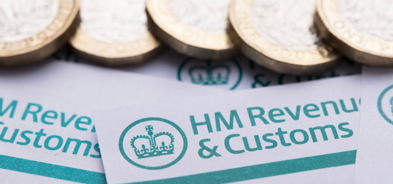Five ways investments can generate an income
Are your savings feeling the effects of the cost-of-living crisis? We explain five different ways investments can generate an income – so you can decide how you want to achieve your financial goals.
The value of investments can fall as well as rise and that you may not get back the amount you originally invested.
Nothing in these briefings is intended to constitute advice or a recommendation and you should not take any investment decision based on their content.
Any opinions expressed may change or have already changed.
Written by David Craik
Published on 30 Jun 20235 minute read

It’s been tough for many of us over the last few months as inflation and interest rates continue to bite into our hard-earned savings. We pay more in interest when we borrow yet receive less interest when we save.
To help you decide how you want to achieve your financial goals, here are five different ways investments can generate an income. As always please remember investments can go down as well as up, and you may not get back what you originally invested.
1) Shares
Dividend payments are regular payments many listed companies give to their shareholders out of their profits or cash reserves. They typically choose to pay the money out on a quarterly basis – every three months – rather than reinvesting it back into the company.
As such, the stocks which often pay out the most dividends tend to be well-established firms such as oil-giant BP, GSK, Shell, BT, Unilever and Vodafone rather than up-and-coming tech start-ups who need to keep pumping profits back into their business to keep growing. Companies also, on occasion, pay a special dividend outside of their regular payments schedule.
2) Funds
Funds, either focused on equities or bonds, can also generate regular income for investors in the form of dividends. When buying a fund, you will often have a choice of two main share classes. One is an Accumulated (Acc) fund and the other is an Income (Inc) fund.
Acc funds
If you choose an Acc fund the income is put to work by being reinvested back into the fund to help it grow. Because of this Acc funds tend to suit longer-term investors who don't need immediate access to any income generated.
Inc funds
If you choose Inc instead, then the fund will pay the income it generates as a regular dividend. You can also invest in funds that focus on generating income growth. These typically have companies or bonds in their portfolios which are well known for paying out regular and competitive dividends/interest payments.
3) Investment trusts
Investment trusts – like shares – are listed on stock exchanges around the globe and also pay out regular dividends for those seeking income. Similar to listed companies, trusts have flexible dividend policies in place which means the frequency and size of payouts can vary. So the trust could choose to retain income during boom years to provide better consistency in leaner times.
Investment trusts come in a range of styles including those focused on commercial and residential property, technology, infrastructure and sustainability. Again, as with funds, you could choose to invest in income-focused investment trusts.
4) Bonds
When an issuer, such as the Government or a business, sells a bond to an investor, it will have a maturity date which could be anything from three months – a short-dated bond – to 10 or 20 years, known as a long-dated bond. This lets an investor know how long they’ll need to wait to get back their original investment.
The issuer will also set the coupon rate. This is the interest rate that the bond will pay out to holders. These rates are mainly fixed, though can also be variable and are usually paid twice a year during a bond's lifetime. As such, income-hunting investors should decide whether they are happy with the coupon rate before buying the bond.
5) Exchange-traded funds (ETFs)
Exchange-traded funds (ETFs) are baskets of assets such as individual stocks or bonds. They typically passively track the performance of a commodity or stock market index, like the FTSE.
Tracking can also be focused on specific sectors such as US e-commerce firms or commodities like gold. ETFs can be a good option for income investors as they can pay out dividends, usually twice a year or every three months.
Similar to a fund, if you have a Distributing ETF then income generated from it goes straight into your bank account. If you have an Accumulating ETF the income goes back into the fund.
Considerations before you invest
Risk is part and parcel of investing. When it comes to dividend investing, you are at the whim of the company, either deciding to give a payout the green light or instead keep hold of their own cash during times of economic or self-inflicted trouble.
By focusing on dividend payers, you may also miss out on the soaring share prices of a fast-growing non-dividend paying firm. Shares can go down as well as up and funds are often heavily reliant on the manager and their stock-picking acumen.
As with most income you also need to consider your tax liability as it is payable on both dividends and interest.
How Bestinvest can help you maximise your savings
At Bestinvest you can invest how you want with as much free expert support as you like. Try one of our smart investment tools, such as Grow My Money, to help you measure your risk levels and reach your investment goals.
You can get support for managing your own investments with one of our free in-depth investment guides such as The Best™ Funds List, our pick of favoured funds. And if you're not ready to manage your investments yourself you can choose from our range of Ready-made Portfolios – there's one for every risk appetite.
Investing can be worthwhile and financially helpful – if you know the basics. That's why our Coaches are always on hand to help. It's easy to book yourself in using our digital calendar. You can talk through your investment plans with a qualified financial planner and get expert support – for free!
Important information
The content of this article is not advice, or a recommendation and you should not make any investment decision based on it.
The value of an investment, and the income from it, goes down as well as up and investors may get back less than the amount originally invested.
Different funds carry varying levels of risk depending on the geographical region and industry sector in which they invest. You should make yourself aware of these specific risks prior to investing. If you are unsure about the suitability of an investment or if you need advice on your specific requirements, we strongly suggest that you consider professional financial advice.
Bonds issued by major governments and companies will be more stable than those issued by emerging markets or smaller corporate issuers; in the event of an issuer experiencing financial difficulty, there may be a risk to some or all of the capital invested. Historical or current yields should not be considered reliable indicators of future performance.
ETFs can be high risk and complex and may not be suitable for retail investors, so you should make sure you understand all the risks involved before investing.
Get insights and events via email
Receive the latest updates straight to your inbox.
You may also like…


Investing


